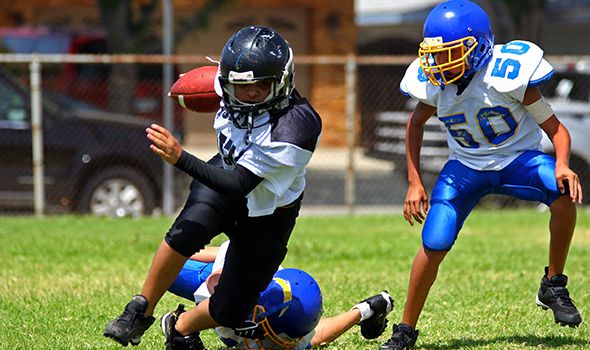Free Consultation - Call Now:
Free Consultation - Call Now:

The ever expanding medical evidence documenting the harmful effects of concussions has caused serious concerns about sports-related concussions in youth athletes. One particularly serious concern is an event that can happen in rare instances in young people who suffer a second concussion while still in the process of recovering from a previous concussion. Aptly called "Second Impact Syndrome" or "SIS," it can result in catastrophic brain swelling that typically leads to death or severe permanent disability.
Second Impact Syndrome has a staggering 90 percent mortality rate. Victims who beat the odds and survive are usually left with serious permanent disabilities such as severe cognitive issues or being unable to talk or walk. Doctors believe that the risk of Second Impact Syndrome is limited to high-school and college-aged individuals whose brains have not finished growing. As a result of this and other concussion-related concerns, the "gladiator mentality" of taking hits and getting back on the field is out and the consensus is that athletes who may have suffered a head injury need to be taken out of the game and evaluated.
The latest guidelines from the Centers for Disease Control and Prevention provide that players with signs of concussion should refrain from playing until they have their physician's permission to resume play and exhibit no symptoms with exertion. Many coaches and trainers have adopted a new the rule of thumb: "Safety first, if there's doubt, keep them out." In addition, it's important for people to know that the issue is not limited to boys and football. It applies to both boys and girls in all types of physical sports.
Efforts to protect young athletes from concussions and their adverse effects are being made across the board. The rules of play are changing to reduce instances of helmet to helmet contact and efforts are ongoing to develop helmets that will provide better protection against concussions. Parents are being educated and discouraged from pressuring coaches to put their children back into games. Youth athletes are being encouraged to report any symptoms to coaches and parents.
Ultimately, however, most people believe that it is the coaches and trainers of young athletes that must bear the principal responsibility for monitoring players, removing players with possible head injuries, and requiring those players to be evaluated and treated by competent medical professionals before allowing them to resume play. In addition, school districts and organizers of youth sports programs need to be responsible for making sure their coaches and trainers are educated about concussions and for implementing detailed concussion policies providing information and guidance for coaches, trainers, players and parents.
The accident lawyers at Heintz Law support youth sports programs. At the same time, we strongly believe that no youth athlete should be allowed to practice or play if they are suspected to have a concussion until they have been cleared to play by a doctor who has expertise in evaluating and treating concussions. Anyone ignoring concussion symptoms and allowing a player to stay on the field or otherwise endangering the health or safety of youth athletes needs to be held accountable.
If you are a parent of a youth athlete who has suffered serious harm due to the wrongful conduct of a coach, trainer or other member of your child's sports organization, please call us and tell us your story. You may not only be entitled to pursue a claim for monetary damages, your actions may also help prevent the same thing from happening to someone else's child.
905 6th Avenue West
Bradenton, FL 34205
Phone: 941-748-2916
Fax: 941-746-4281
Map & Directions
Phone: 941-238-0093
Fax: 941-746-4281
Map & Directions
Attorney Advertising | Prior results do not guarantee a similar outcome. The information on this website is for general information purposes only. Nothing on this site should be taken as legal advice for any individual case or situation. This information is not intended to create, and receipt or viewing does not constitute, an attorney-client relationship. This site is protected by reCAPTCHA and the Google Privacy Policy and Terms of Service apply.